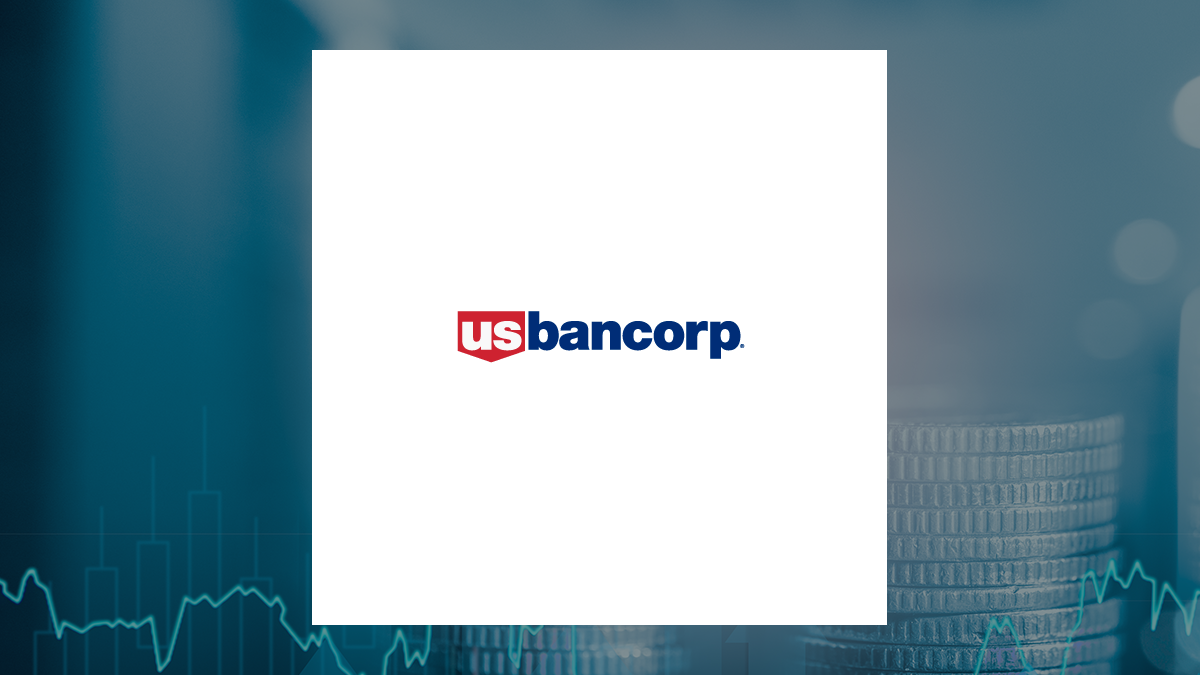U.S. Bancorp (NYSE:USB – Get Free Report) and Capital Bancorp (NASDAQ:CBNK – Get Free Report) are both finance companies, but which is the better stock? We will contrast the two businesses based on the strength of their risk, valuation, analyst recommendations, profitability, earnings, dividends and institutional ownership.
Dividends
U.S. Bancorp pays an annual dividend of $2.00 per share and has a dividend yield of 3.8%. Capital Bancorp pays an annual dividend of $0.40 per share and has a dividend yield of 1.4%. U.S. Bancorp pays out 61.2% of its earnings in the form of a dividend. Capital Bancorp pays out 17.2% of its earnings in the form of a dividend. Both companies have healthy payout ratios and should be able to cover their dividend payments with earnings for the next several years. U.S. Bancorp has increased its dividend for 14 consecutive years. U.S. Bancorp is clearly the better dividend stock, given its higher yield and longer track record of dividend growth.
Volatility & Risk
U.S. Bancorp has a beta of 1.02, suggesting that its stock price is 2% more volatile than the S&P 500. Comparatively, Capital Bancorp has a beta of 0.47, suggesting that its stock price is 53% less volatile than the S&P 500.
Analyst Ratings
| Sell Ratings | Hold Ratings | Buy Ratings | Strong Buy Ratings | Rating Score | |
| U.S. Bancorp | 0 | 12 | 8 | 0 | 2.40 |
| Capital Bancorp | 0 | 1 | 2 | 0 | 2.67 |
U.S. Bancorp presently has a consensus price target of $51.22, suggesting a potential downside of 2.42%. Capital Bancorp has a consensus price target of $27.67, suggesting a potential downside of 3.13%. Given U.S. Bancorp’s higher possible upside, equities analysts plainly believe U.S. Bancorp is more favorable than Capital Bancorp.
Institutional & Insider Ownership
77.6% of U.S. Bancorp shares are held by institutional investors. Comparatively, 56.1% of Capital Bancorp shares are held by institutional investors. 0.2% of U.S. Bancorp shares are held by insiders. Comparatively, 32.5% of Capital Bancorp shares are held by insiders. Strong institutional ownership is an indication that large money managers, endowments and hedge funds believe a company will outperform the market over the long term.
Profitability
This table compares U.S. Bancorp and Capital Bancorp’s net margins, return on equity and return on assets.
| Net Margins | Return on Equity | Return on Assets | |
| U.S. Bancorp | 12.92% | 12.91% | 0.96% |
| Capital Bancorp | 14.49% | 12.66% | 1.41% |
Valuation & Earnings
This table compares U.S. Bancorp and Capital Bancorp”s revenue, earnings per share (EPS) and valuation.
| Gross Revenue | Price/Sales Ratio | Net Income | Earnings Per Share | Price/Earnings Ratio | |
| U.S. Bancorp | $27.09 billion | 3.02 | $5.43 billion | $3.27 | 16.05 |
| Capital Bancorp | $208.18 million | 2.27 | $35.87 million | $2.33 | 12.26 |
U.S. Bancorp has higher revenue and earnings than Capital Bancorp. Capital Bancorp is trading at a lower price-to-earnings ratio than U.S. Bancorp, indicating that it is currently the more affordable of the two stocks.
Summary
U.S. Bancorp beats Capital Bancorp on 12 of the 17 factors compared between the two stocks.
About U.S. Bancorp
 U.S. Bancorp, a financial services holding company, provides various financial services to individuals, businesses, institutional organizations, governmental entities, and other financial institutions in the United States. It operates through Wealth, Corporate, Commercial and Institutional Banking; Consumer and Business Banking; Payment Services; and Treasury and Corporate Support segments. The company offers depository services, including checking accounts, savings accounts, and time certificate contracts; and lending services, such as traditional credit products and credit card services, lease financing and import/export trade, asset-backed lending, agricultural finance, and other products. It also provides ancillary services comprising capital markets, treasury management, and receivable lock-box collection services to corporate and governmental entity customers. In addition, the company offers asset management and fiduciary services for individuals, estates, foundations, business corporations, and charitable organizations. Further, it provides investment and insurance products to its customers principally within its domestic markets, as well as fund administration services to mutual and other funds. Additionally, the company provides corporate and purchasing card, and corporate trust services. Furthermore, it offers trust and investment management, merchant and ATM processing, mortgage banking, insurance, and brokerage and leasing services. U.S. Bancorp was founded in 1863 and is headquartered in Minneapolis, Minnesota.
U.S. Bancorp, a financial services holding company, provides various financial services to individuals, businesses, institutional organizations, governmental entities, and other financial institutions in the United States. It operates through Wealth, Corporate, Commercial and Institutional Banking; Consumer and Business Banking; Payment Services; and Treasury and Corporate Support segments. The company offers depository services, including checking accounts, savings accounts, and time certificate contracts; and lending services, such as traditional credit products and credit card services, lease financing and import/export trade, asset-backed lending, agricultural finance, and other products. It also provides ancillary services comprising capital markets, treasury management, and receivable lock-box collection services to corporate and governmental entity customers. In addition, the company offers asset management and fiduciary services for individuals, estates, foundations, business corporations, and charitable organizations. Further, it provides investment and insurance products to its customers principally within its domestic markets, as well as fund administration services to mutual and other funds. Additionally, the company provides corporate and purchasing card, and corporate trust services. Furthermore, it offers trust and investment management, merchant and ATM processing, mortgage banking, insurance, and brokerage and leasing services. U.S. Bancorp was founded in 1863 and is headquartered in Minneapolis, Minnesota.
About Capital Bancorp
 Capital Bancorp, Inc. operates as the bank holding company for Capital Bank, N.A. that provides various banking products and services to businesses, not-for-profit associations, and entrepreneurs in Maryland, Virginia, and the District of Columbia. It operates through Commercial Banking, Capital Bank Home Loans, and OpenSky segments. The company offers a range of deposit products, including checking and savings, time, interest bearing and noninterest-bearing demand, and money market accounts, as well as certificates of deposit; and credit cards. It also originates residential mortgages; issues trust preferred securities; and provides residential and commercial real estate, construction, and commercial and industrial loans, as well as other consumer loans, such as term loans, car loans, and boat loans to small to medium-sized businesses, professionals, real estate investors, and small residential builders and individuals. Capital Bancorp, Inc. was founded in 1974 and is headquartered in Rockville, Maryland.
Capital Bancorp, Inc. operates as the bank holding company for Capital Bank, N.A. that provides various banking products and services to businesses, not-for-profit associations, and entrepreneurs in Maryland, Virginia, and the District of Columbia. It operates through Commercial Banking, Capital Bank Home Loans, and OpenSky segments. The company offers a range of deposit products, including checking and savings, time, interest bearing and noninterest-bearing demand, and money market accounts, as well as certificates of deposit; and credit cards. It also originates residential mortgages; issues trust preferred securities; and provides residential and commercial real estate, construction, and commercial and industrial loans, as well as other consumer loans, such as term loans, car loans, and boat loans to small to medium-sized businesses, professionals, real estate investors, and small residential builders and individuals. Capital Bancorp, Inc. was founded in 1974 and is headquartered in Rockville, Maryland.
Receive News & Ratings for U.S. Bancorp Daily - Enter your email address below to receive a concise daily summary of the latest news and analysts' ratings for U.S. Bancorp and related companies with MarketBeat.com's FREE daily email newsletter.
